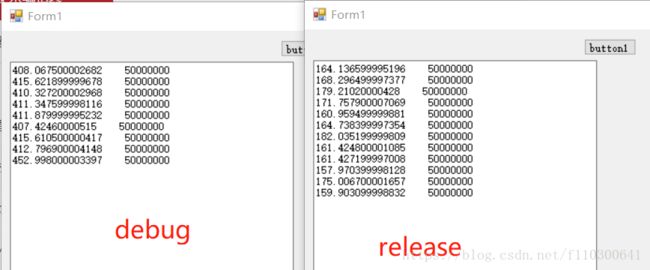- Unity UI的未来之路:从UGUI到UI Toolkit的架构演进与特性剖析(1)
伽蓝_游戏
unityui架构游戏引擎游戏c#.net
第一章:全面的特性对决——一份来自官方的详细评测报告在Unity引擎的UI开发领域,开发者主要面对两种核心技术选型:成熟且深度集成的UGUI(UnityUI)系统,以及代表未来方向、以性能和现代工作流为设计目标的UIToolkit。两者在底层架构、工作流程、性能模型和功能覆盖上存在本质差异。本章将基于详细的功能特性对比,对二者进行深入的技术分析,为开发者在项目初期做出合理的技术选型提供依据。核心差
- Unity UI的未来之路:从UGUI到UI Toolkit的架构演进与特性剖析(2)
伽蓝_游戏
unityui架构游戏引擎游戏c#.net
第二章:初识新王——UIToolkit的核心理念与架构剖析在第一章中,我们通过详尽的特性对比,清晰地看到了UIToolkit作为“新王”所展现出的、在性能和现代化工作流上的巨大潜力。然而,要真正理解并驾驭这把未来的“神兵利器”,我们必须更进一步,深入其内部,系统性地剖析它的核心设计理念、底层架构和关键技术特性。这一章,我们将正式踏上对UIToolkit的探索之旅,揭示其“Web技术启发”背后的真正
- 油猴正确开启方法Please enable developer mode to allow userscript injection.
以下步骤缺一不可步骤扩展程序管理扩展程序启用开发者模式启用油猴油猴详情(能打开的全部打开)允许运行用户脚本在无痕模式下启用允许访问文件网址建议不用的时候都关闭结果之后就可以打开油猴插件发现最上面的蓝色提示不见了“Pleaseenabledevelopermodetoallowuserscriptinjection.”可以正常使用安装的插件了
- SAP Word 模板与 XML 数据流合并过程深度剖析——以表格结构为例
汪子熙
ABAP百科全书wordxmlCRMABAPNetWeaverSAP
在CRMWebClientUI的Office集成功能里,Word模板与XML数据流的动态合并,是合同、报价单等文档自动生成的技术核心。本文结合SAP官方示例代码与OpenXML规范,从模板绑定、数据预处理、运行时递归填充到实际排错技巧,全景展示表格结构合并的幕后细节,并给出一段源自真实项目的实战案例,帮助读者迅速掌握这一看似神秘的“魔术”。(document567.rssing.com,docum
- 关于avif和heic图片格式的对比
huluang
视频编解码
前言:avif最新的图片格式,基于av1heic苹果独家格式,基于H.265由于特殊原因需要对两种格式进行选优,现阶段通过特定软件发现heic比avif在最终体积和转换速度上拥有不可比拟的优势,具体如下:raw原图:无损转换速度对比可以看到heic速度快,当转换图片数量多时,这个差距就非常明显了。avif格式444,10速度转换如下图:heic格式100%转换如下图:体积对比经过对比avif比he
- AE电脑中文版软件下载及安装教程安装包百度网盘地址免费破解版一键安装激活方法
心墙
提示:以下是安装教程,安装包资源等放在下面,请往下翻。其他版本安装方法类似。安装教程:1.鼠标右击【Ae2024(64bit)】压缩包(win11及以上系统需先点击“显示更多选项”)【解压到Ae2024(64bit)】。2.打开解压后的文件夹,鼠标右击【Setup】选择【以管理员身份运行】。3.点击【文件夹图标】,点击【更改位置】。4.①双击打开需要将软件安装的磁盘(如:D盘)②新建一个【Ae】文
- Verilator 的文件目录结构(腾讯元宝)
dadaobusi
verilator
当然可以!我们来详细分析Verilator的Git仓库(GitHub上的官方仓库:https://github.com/verilator/verilator)的文件目录结构,帮助你理解它的代码组织方式以及各个部分的功能。一、Verilator的Git仓库概览Verilator是一个用C++编写的高性能Verilog/SystemVerilogRTL仿真器,其源代码仓库结构清晰,模块化程度较高。整
- Verilator的src目录(腾讯元宝)
dadaobusi
verilator
src/目录是Verilator的核心源代码所在目录,包含了实现Verilator主要功能的C++源文件(.cpp文件)以及部分头文件(.h文件)。这些文件共同构成了Verilator的仿真引擎、信号管理、波形生成等核心功能。由于Verilator的代码规模较大且功能复杂,src/目录下的文件通常按照功能模块进行组织,但并没有像lib/目录那样明确地划分为多个子目录。因此,我们需要逐个分析src/
- verilator如何实现RTL的仿真(腾讯混元)
Verilator是一个用于将Verilog或SystemVerilogRTL(寄存器传输级)代码转换为C++或SystemC模型的工具,主要用于高性能的功能仿真和验证。它不是像ModelSim或VCS那样的传统事件驱动仿真器,而是通过静态编译的方式将RTL转换为可执行的C++代码,从而实现高效仿真。下面详细介绍Verilator实现RTL仿真的流程与实现细节。一、Verilator的基本工作流程
- python第一次作业
1.技术面试题(1)TCP与UDP的区别是什么?**答:1.TCP是面向连接的协议,而UDP是元连接的协议2.TCP协议传输是可靠的,而UDP协议的传输是“尽力而为3.TCP是可以实现流控,而UDP不行4.TCP可以实现分段,而UDP不行5.TCP的传输速率较慢,占用资源较大,UDP传输速率快,占用资源小。TCP/UDP的应用场景不同TCP适合可靠性高的效率要求低的,UDP可靠性低,效率高。(2)
- python
www_hhhhhhh
pythonjava面试
1.技术面试题(1)解释Linux中的进程、线程和守护进程的概念,以及如何管理它们?答:进程:是操作系统进行资源分配的基本单位,拥有独立的地址空间、进程控制块,每个进程之间相互隔离。例如,打开一个终端窗口会启动一个bash进程。线程:是操作系统调度的基本单位,隶属于进程,共享进程的资源,但有独立的线程控制块和栈。线程切换开销远小于进程。例如,一个Web服务器的单个进程中,多个线程可同时处理不同客户
- Python lambda表达式:匿名函数的适用场景与限制
梦幻南瓜
pythonpython服务器linux
目录1.Lambda表达式概述1.1Lambda表达式的基本语法1.2简单示例2.Lambda表达式的核心特点2.1匿名性2.2简洁性2.3即时性2.4函数式编程特性3.Lambda表达式的适用场景3.1作为高阶函数的参数3.2简单的数据转换3.3条件筛选3.4GUI编程中的回调函数3.5Pandas数据处理4.Lambda表达式的限制4.1只能包含单个表达式4.2没有语句4.3缺乏文档字符串4.
- Windows 环境下 Nginx 的安装与高级配置指南
目录第一章:Windows平台Nginx概述1.1Windows版Nginx特点1.2适用场景分析第二章:Nginx安装与配置2.1下载与安装2.2目录结构说明2.3注册为系统服务(可选)第三章:基础配置与优化3.1主配置文件优化(conf/nginx.conf)3.2虚拟主机配置示例第四章:性能优化策略4.1Windows特有优化参数4.2不同配置性能对比4.3系统参数调整第五章:安全配置5.1
- 【python】
www_hhhhhhh
python面试职场和发展
1.技术面试题(1)TCP与UDP的区别是什么?答:TCP(传输控制协议)和UDP(用户数据报协议)是两种常见的传输层协议,主要区别在于连接方式和可靠性。TCP是面向连接的协议,传输数据前需建立连接,通过三次握手确保连接可靠,传输过程中有确认、重传和顺序控制机制,保证数据完整、按序到达,适用于网页浏览、文件传输等对可靠性要求高的场景。UDP是无连接的协议,无需建立连接即可发送数据,不保证数据可靠传
- Python函数的返回值
1.返回值定义及案例:2.返回值与print的区别:print仅仅是打印在控制台,而return则是将return后面的部分作为返回值作为函数的输出,可以用变量接走,继续使用该返回值做其它事。3.保存函数的返回值如果一个函数return返回了一个数据,那么想要用这个数据,那么就需要保存.#定义函数defadd2num(a,b): returna+b#调用函数,顺便保存函数的返回值result=
- python怎么把函数返回值_python函数怎么返回值
python函数使用return语句返回“返回值”,可以将其赋给其它变量作其它的用处。所有函数都有返回值,如果没有return语句,会隐式地调用returnNone作为返回值。python函数使用return语句返回"返回值",可以将其赋给其它变量作其它的用处。所有函数都有返回值,如果没有return语句,会隐式地调用returnNone作为返回值。一个函数可以存在多条return语句,但只有一条
- Python星球日记 - 第8天:函数基础
Code_流苏
Python星球日记python函数def关键字函数参数返回值
引言:上一篇:Python星球日记-第7天:字典与集合名人说:路漫漫其修远兮,吾将上下而求索。——屈原《离骚》创作者:Code_流苏(CSDN)(一个喜欢古诗词和编程的Coder)目录一、函数的定义与调用1.什么是函数?2.如何定义函数-`def`关键字3.函数调用方式二、参数与返回值1.函数参数类型2.如何传递参数3.返回值和`return`语句三、局部变量与全局变量1.变量作用域概念2.局部变
- 华为OD机试2025C卷 - 小明的幸运数 (C++ & Python & JAVA & JS & GO)
无限码力
华为od华为OD机试2025C卷华为OD2025C卷华为OD机考2025C卷
小明的幸运数华为OD机试真题目录点击查看:华为OD机试2025C卷真题题库目录|机考题库+算法考点详解华为OD机试2025C卷100分题型题目描述小明在玩一个游戏,游戏规则如下:在游戏开始前,小明站在坐标轴原点处(坐标值为0).给定一组指令和一个幸运数,每个指令都是一个整数,小明按照指令前进指定步数或者后退指定步数。前进代表朝坐标轴的正方向走,后退代表朝坐标轴的负方向走。幸运数为一个整数,如果某个
- 头条搜索极速版邀请码是多少呀?头条搜索极速版邀请码在哪里填写?
资源共享猫
头条搜索极速版是一款由北京微播视界科技有限公司打造的精简版软件。与抖音官方版相比,头条搜索极速版拥有更小的安装包体积,故用户可以向享受更快的软件运行速度,下载更快以及拥有更省流量的体验,全面的抖音官方短视频内容,各种创意视频智能推荐满足您的需求,趣味的社交系统,强大的美颜系统,实用的红包系统,让不少用户越来越爱它!本次小编给大家带来几个好用版本的头条搜索极速版软件,感兴趣的话,快来绿色资源网下载吧
- Python 函数返回值
落花雨时
Python基础
#返回值,返回值就是函数执行以后返回的结果#可以通过return来指定函数的返回值#可以之间使用函数的返回值,也可以通过一个变量来接收函数的返回值defsum(*nums):#定义一个变量,来保存结果result=0#遍历元组,并将元组中的数进行累加forninnums:result+=nprint(result)#sum(123,456,789)#return后边跟什么值,函数就会返回什么值#r
- 常用 Flutter 命令大全:从开发到发布全流程总结
Bryce李小白
flutter
常用Flutter命令大全:从开发到发布全流程总结Flutter命令行工具是开发者日常工作中不可或缺的利器,涵盖了环境配置、项目管理、调试运行、构建发布等全流程操作。本文整理了开发中最常用的Flutter命令,帮助开发者提高工作效率。一、环境与配置相关命令这类命令主要用于检查和管理Flutter开发环境,确保工具链正常工作。命令功能描述flutter--version查看当前Flutter版本及D
- 内网穿透神器盘点!本地开发调试、私有服务搭建提供互联网访问,一网打尽!附常见主流工具
搬码临时工
服务器
还在为本地服务无法外网访问抓狂?微信开发回调调试总被域名限制逼疯?或是想低成本搭建私有云盘却苦于无公网IP?内网穿透工具就是你的终极救星!本文精选5款高口碑工具,从极简操作到硬核自建,助你轻松突破网络边界,玩转本地服务公网访问!本文附一些常见主流内网穿透工具对比,速速收藏!一、什么是内网穿透内网穿透相当于给你的内网服务“开外挂”——无需公网IP,即可通过中转服务器或P2P直连,将局域网内的设备(如
- Invalid `Podfile` file: undefined method `exists?‘ for File:Class解决方案
mac系统重装之后运行之前的Flutter项目,报下面的错误:当时的Mac系统为12.5.1Flutter的版本号为3.0.5ruby的版本号为3.2.0[!]Invalid`Podfile`file:undefinedmethod`exists?'forFile:Classreturn[]unlessFile.exists?file_path^^^^^^^^Didyoumean?exist?.#
- 存档python爬虫、Web学习资料
1python爬虫学习学习Python爬虫是个不错的选择,它能够帮你高效地获取网络数据。下面为你提供系统化的学习路径和建议:1.打好基础首先要掌握Python基础知识,这是学习爬虫的前提。比如:变量、数据类型、条件语句、循环等基础语法。列表、字典等常用数据结构的操作。函数、模块和包的使用方法。文件读写操作。推荐通过阅读《Python编程:从入门到实践》这本书或者在Codecademy、LeetCo
- 0711易效能践行检视2019
秋天的盛开
石柱扶贫出差第四天,因为新工作项目特性初级阶段,所以有关工作计划都是一周为单位,但是要事都提前安排,效率有保障。白天扶贫现场指导完成产品,今天新产品改良成功,特别高兴。下班就是回归大自然,与儿子一起体验乡村生活,今天他开始结交朋友,特别高兴看到他这样的成长和适应环境的过程。这样的一天,是我喜欢的人生模式,工作生活都是良性的循环,有自己的爱好,价值,意义。与身边的人,达到和谐共生,距离刚刚好,彼此互
- Python爬虫入门到实战(3)-对网页进行操作
荼蘼
爬虫
一.获取和操作网页元素1.获取网页中的指定元素tag_name()方法:获取元素名称。text()方法:获取元素文本内容。click()方法():点击此元素。submit()方法():提交表单。send_keys()方法:模拟输入信息。size()方法:获取元素的尺寸可进入selenium库文件夹下的webdriver\remote\webelement.py中查看更多的操作方法,2.在元素中输入
- 华为OD 机试 2025 B卷 - 周末爬山 (C++ & Python & JAVA & JS & GO)
无限码力
华为OD机试真题刷题笔记华为od华为OD2025B卷华为OD机考2025B卷华为OD机试2025B卷华为OD机试
周末爬山华为OD机试真题目录点击查看:华为OD机试2025B卷真题题库目录|机考题库+算法考点详解华为OD机试2025B卷200分题型题目描述周末小明准备去爬山锻炼,0代表平地,山的高度使用1到9来表示,小明每次爬山或下山高度只能相差k及k以内,每次只能上下左右一个方向上移动一格,小明从左上角(0,0)位置出发输入描述第一行输入mnk(空格分隔)。代表m*n的二维山地图,k为小明每次爬山或下山高度
- Python,C++,Go开发芯片电路设计APP
Geeker-2025
pythonc++golang
#芯片电路设计APP-Python/C++/Go综合开发方案##系统架构设计```mermaidgraphTDA[Web前端]-->B(Python设计界面)B-->C(GoAPI网关)C-->D[C++核心引擎]D-->E[硬件加速]F[数据库]-->CG[EDA工具链]-->DH[云服务]-->C```##技术栈分工|技术|应用领域|优势||------|----------|------||
- 红队测试-代理和中间人攻击工具
小浪崇礼
BetterCAP-Modular,portableandeasilyextensibleMITMframework.Ettercap-Comprehensive,maturesuiteformachine-in-the-middleattacks.Habu-Pythonutilityimplementingavarietyofnetworkattacks,suchasARPpoisoning,D
- pyside6使用1 窗体、信号和槽
一、概要由于作者前期很多年都在使用C++和Qt框架进行项目的开发工作,故可以熟练的使用Qt框架。Qt框架在界面设计以及跨平台运用方面,有着巨大的优势,而界面设计恰恰是python的短板,故使用pyside6实现python和Qt的互补。1.1pyside6安装更新pip工具:pipinstall--upgradepip命令行执行如下指令:pipinstallpyside6-ihttps://pyp
- java杨辉三角
3213213333332132
java基础
package com.algorithm;
/**
* @Description 杨辉三角
* @author FuJianyong
* 2015-1-22上午10:10:59
*/
public class YangHui {
public static void main(String[] args) {
//初始化二维数组长度
int[][] y
- 《大话重构》之大布局的辛酸历史
白糖_
重构
《大话重构》中提到“大布局你伤不起”,如果企图重构一个陈旧的大型系统是有非常大的风险,重构不是想象中那么简单。我目前所在公司正好对产品做了一次“大布局重构”,下面我就分享这个“大布局”项目经验给大家。
背景
公司专注于企业级管理产品软件,企业有大中小之分,在2000年初公司用JSP/Servlet开发了一套针对中
- 电驴链接在线视频播放源码
dubinwei
源码电驴播放器视频ed2k
本项目是个搜索电驴(ed2k)链接的应用,借助于磁力视频播放器(官网:
http://loveandroid.duapp.com/ 开放平台),可以实现在线播放视频,也可以用迅雷或者其他下载工具下载。
项目源码:
http://git.oschina.net/svo/Emule,动态更新。也可从附件中下载。
项目源码依赖于两个库项目,库项目一链接:
http://git.oschina.
- Javascript中函数的toString()方法
周凡杨
JavaScriptjstoStringfunctionobject
简述
The toString() method returns a string representing the source code of the function.
简译之,Javascript的toString()方法返回一个代表函数源代码的字符串。
句法
function.
- struts处理自定义异常
g21121
struts
很多时候我们会用到自定义异常来表示特定的错误情况,自定义异常比较简单,只要分清是运行时异常还是非运行时异常即可,运行时异常不需要捕获,继承自RuntimeException,是由容器自己抛出,例如空指针异常。
非运行时异常继承自Exception,在抛出后需要捕获,例如文件未找到异常。
此处我们用的是非运行时异常,首先定义一个异常LoginException:
/**
* 类描述:登录相
- Linux中find常见用法示例
510888780
linux
Linux中find常见用法示例
·find path -option [ -print ] [ -exec -ok command ] {} \;
find命令的参数;
- SpringMVC的各种参数绑定方式
Harry642
springMVC绑定表单
1. 基本数据类型(以int为例,其他类似):
Controller代码:
@RequestMapping("saysth.do")
public void test(int count) {
}
表单代码:
<form action="saysth.do" method="post&q
- Java 获取Oracle ROWID
aijuans
javaoracle
A ROWID is an identification tag unique for each row of an Oracle Database table. The ROWID can be thought of as a virtual column, containing the ID for each row.
The oracle.sql.ROWID class i
- java获取方法的参数名
antlove
javajdkparametermethodreflect
reflect.ClassInformationUtil.java
package reflect;
import javassist.ClassPool;
import javassist.CtClass;
import javassist.CtMethod;
import javassist.Modifier;
import javassist.bytecode.CodeAtt
- JAVA正则表达式匹配 查找 替换 提取操作
百合不是茶
java正则表达式替换提取查找
正则表达式的查找;主要是用到String类中的split();
String str;
str.split();方法中传入按照什么规则截取,返回一个String数组
常见的截取规则:
str.split("\\.")按照.来截取
str.
- Java中equals()与hashCode()方法详解
bijian1013
javasetequals()hashCode()
一.equals()方法详解
equals()方法在object类中定义如下:
public boolean equals(Object obj) {
return (this == obj);
}
很明显是对两个对象的地址值进行的比较(即比较引用是否相同)。但是我们知道,String 、Math、I
- 精通Oracle10编程SQL(4)使用SQL语句
bijian1013
oracle数据库plsql
--工资级别表
create table SALGRADE
(
GRADE NUMBER(10),
LOSAL NUMBER(10,2),
HISAL NUMBER(10,2)
)
insert into SALGRADE values(1,0,100);
insert into SALGRADE values(2,100,200);
inser
- 【Nginx二】Nginx作为静态文件HTTP服务器
bit1129
HTTP服务器
Nginx作为静态文件HTTP服务器
在本地系统中创建/data/www目录,存放html文件(包括index.html)
创建/data/images目录,存放imags图片
在主配置文件中添加http指令
http {
server {
listen 80;
server_name
- kafka获得最新partition offset
blackproof
kafkapartitionoffset最新
kafka获得partition下标,需要用到kafka的simpleconsumer
import java.util.ArrayList;
import java.util.Collections;
import java.util.Date;
import java.util.HashMap;
import java.util.List;
import java.
- centos 7安装docker两种方式
ronin47
第一种是采用yum 方式
yum install -y docker
- java-60-在O(1)时间删除链表结点
bylijinnan
java
public class DeleteNode_O1_Time {
/**
* Q 60 在O(1)时间删除链表结点
* 给定链表的头指针和一个结点指针(!!),在O(1)时间删除该结点
*
* Assume the list is:
* head->...->nodeToDelete->mNode->nNode->..
- nginx利用proxy_cache来缓存文件
cfyme
cache
user zhangy users;
worker_processes 10;
error_log /var/vlogs/nginx_error.log crit;
pid /var/vlogs/nginx.pid;
#Specifies the value for ma
- [JWFD开源工作流]JWFD嵌入式语法分析器负号的使用问题
comsci
嵌入式
假如我们需要用JWFD的语法分析模块定义一个带负号的方程式,直接在方程式之前添加负号是不正确的,而必须这样做:
string str01 = "a=3.14;b=2.71;c=0;c-((a*a)+(b*b))"
定义一个0整数c,然后用这个整数c去
- 如何集成支付宝官方文档
dai_lm
android
官方文档下载地址
https://b.alipay.com/order/productDetail.htm?productId=2012120700377310&tabId=4#ps-tabinfo-hash
集成的必要条件
1. 需要有自己的Server接收支付宝的消息
2. 需要先制作app,然后提交支付宝审核,通过后才能集成
调试的时候估计会真的扣款,请注意
- 应该在什么时候使用Hadoop
datamachine
hadoop
原帖地址:http://blog.chinaunix.net/uid-301743-id-3925358.html
存档,某些观点与我不谋而合,过度技术化不可取,且hadoop并非万能。
--------------------------------------------万能的分割线--------------------------------
有人问我,“你在大数据和Hado
- 在GridView中对于有外键的字段使用关联模型进行搜索和排序
dcj3sjt126com
yii
在GridView中使用关联模型进行搜索和排序
首先我们有两个模型它们直接有关联:
class Author extends CActiveRecord {
...
}
class Post extends CActiveRecord {
...
function relations() {
return array(
'
- 使用NSString 的格式化大全
dcj3sjt126com
Objective-C
格式定义The format specifiers supported by the NSString formatting methods and CFString formatting functions follow the IEEE printf specification; the specifiers are summarized in Table 1. Note that you c
- 使用activeX插件对象object滚动有重影
蕃薯耀
activeX插件滚动有重影
使用activeX插件对象object滚动有重影 <object style="width:0;" id="abc" classid="CLSID:D3E3970F-2927-9680-BBB4-5D0889909DF6" codebase="activex/OAX339.CAB#
- SpringMVC4零配置
hanqunfeng
springmvc4
基于Servlet3.0规范和SpringMVC4注解式配置方式,实现零xml配置,弄了个小demo,供交流讨论。
项目说明如下:
1.db.sql是项目中用到的表,数据库使用的是oracle11g
2.该项目使用mvn进行管理,私服为自搭建nexus,项目只用到一个第三方 jar,就是oracle的驱动;
3.默认项目为零配置启动,如果需要更改启动方式,请
- 《开源框架那点事儿16》:缓存相关代码的演变
j2eetop
开源框架
问题引入
上次我参与某个大型项目的优化工作,由于系统要求有比较高的TPS,因此就免不了要使用缓冲。
该项目中用的缓冲比较多,有MemCache,有Redis,有的还需要提供二级缓冲,也就是说应用服务器这层也可以设置一些缓冲。
当然去看相关实现代代码的时候,大致是下面的样子。
[java]
view plain
copy
print
?
public vo
- AngularJS浅析
kvhur
JavaScript
概念
AngularJS is a structural framework for dynamic web apps.
了解更多详情请见原文链接:http://www.gbtags.com/gb/share/5726.htm
Directive
扩展html,给html添加声明语句,以便实现自己的需求。对于页面中html元素以ng为前缀的属性名称,ng是angular的命名空间
- 架构师之jdk的bug排查(一)---------------split的点号陷阱
nannan408
split
1.前言.
jdk1.6的lang包的split方法是有bug的,它不能有效识别A.b.c这种类型,导致截取长度始终是0.而对于其他字符,则无此问题.不知道官方有没有修复这个bug.
2.代码
String[] paths = "object.object2.prop11".split("'");
System.ou
- 如何对10亿数据量级的mongoDB作高效的全表扫描
quentinXXZ
mongodb
本文链接:
http://quentinXXZ.iteye.com/blog/2149440
一、正常情况下,不应该有这种需求
首先,大家应该有个概念,标题中的这个问题,在大多情况下是一个伪命题,不应该被提出来。要知道,对于一般较大数据量的数据库,全表查询,这种操作一般情况下是不应该出现的,在做正常查询的时候,如果是范围查询,你至少应该要加上limit。
说一下,
- C语言算法之水仙花数
qiufeihu
c算法
/**
* 水仙花数
*/
#include <stdio.h>
#define N 10
int main()
{
int x,y,z;
for(x=1;x<=N;x++)
for(y=0;y<=N;y++)
for(z=0;z<=N;z++)
if(x*100+y*10+z == x*x*x
- JSP指令
wyzuomumu
jsp
jsp指令的一般语法格式: <%@ 指令名 属性 =”值 ” %>
常用的三种指令: page,include,taglib
page指令语法形式: <%@ page 属性 1=”值 1” 属性 2=”值 2”%>
include指令语法形式: <%@include file=”relative url”%> (jsp可以通过 include

